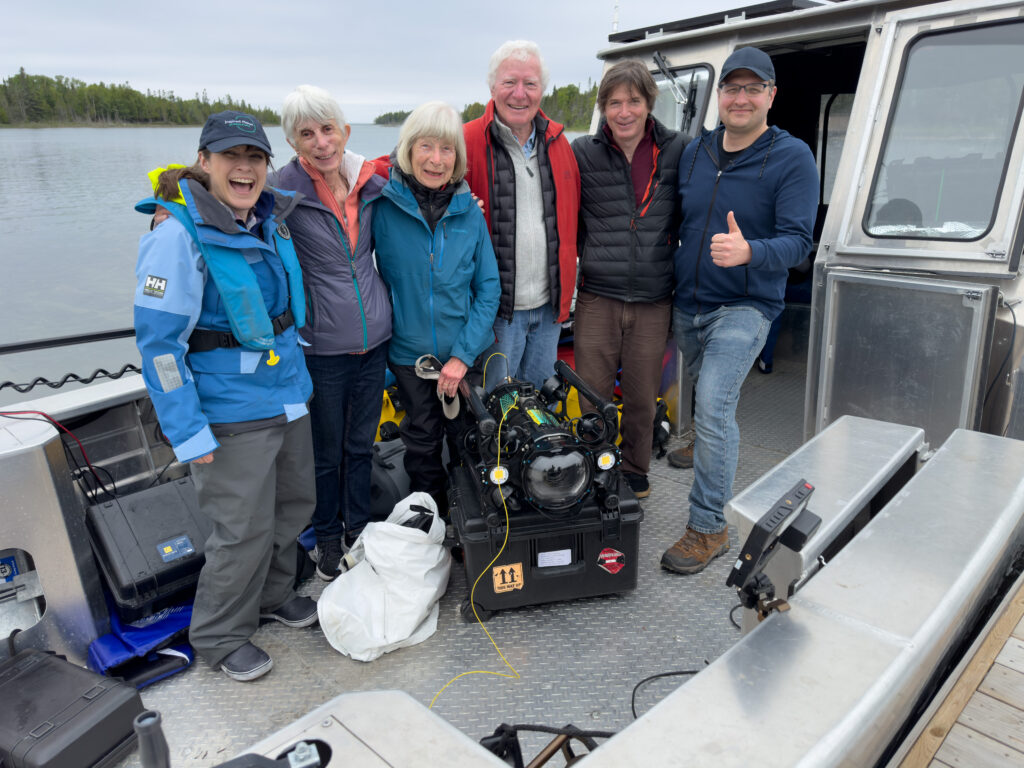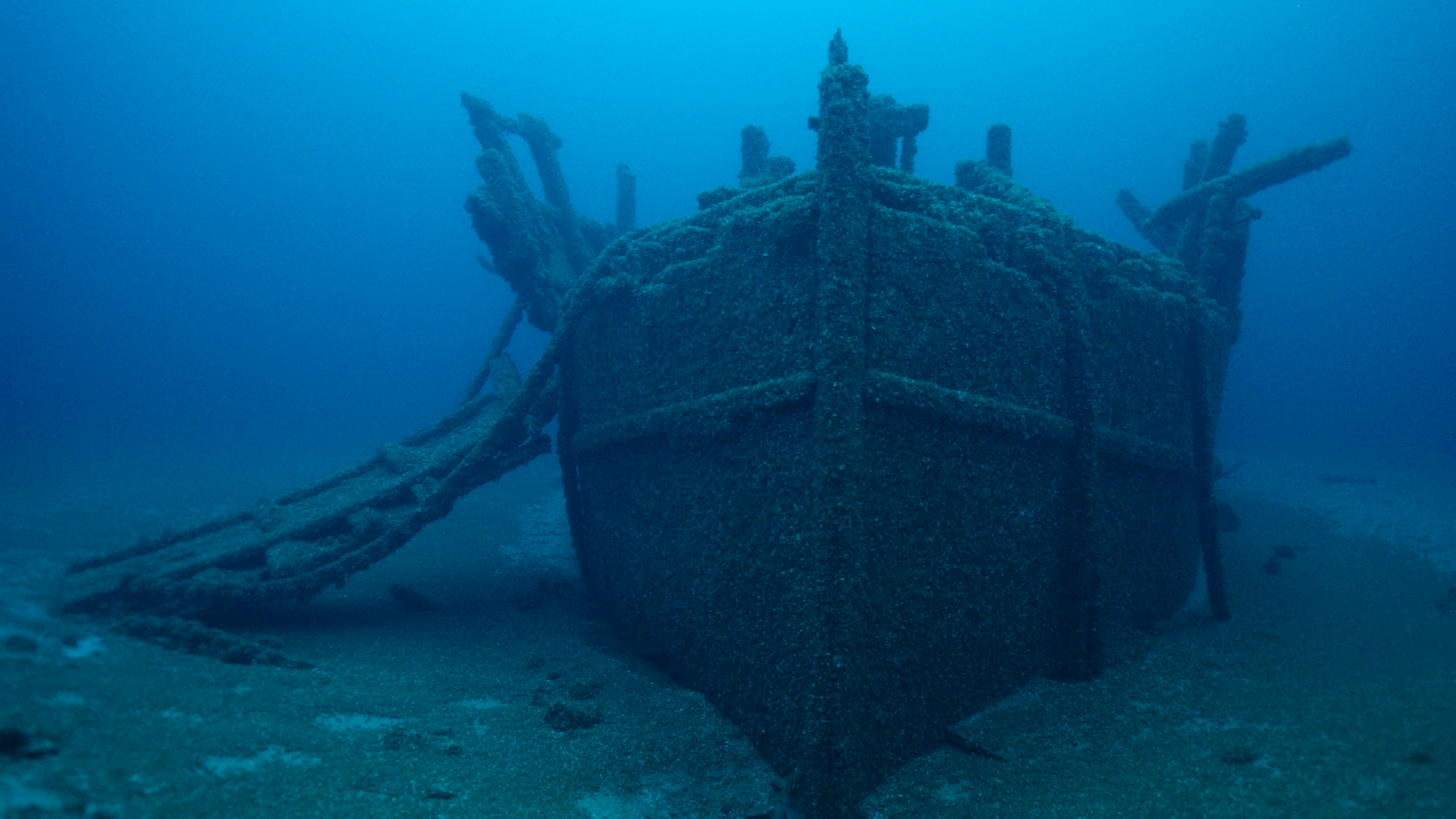From the depths of Lake Huron to the shores of Haida Gwaii, one family’s mystery found resolution after 129 years.
Tlell’s Leandre Vigneault recently returned from a unique family reunion and vacation at Lake Huron. Vigneault, his wife Lynn, and three other family members took a once-in-a-lifetime chance to see the shipwreck that claimed the life of his great-great-grandfather, Captain Hans Larsen.
The long-lost ship went down in 1895 off the shore of Lake Huron’s Bruce Peninsula due to an early winter storm that claimed the lives of 11 people, including Captain Larsen.
Over 100 years later, a lake survey by the United States Geological Survey revealed a “weird bump.” The surveyors contacted local filmmakers Yvonne Drebert and Zach Melnick of Inspired Planet Productions to take a closer look.
The pair, who live by the lake in Larsen Cove, named after Vigneault’s great-great-grandfather, have a submersible drone for recording underwater video. They used it to look at the “bump” found in the survey, and it quickly became clear it was a ship at the bottom of the lake.
“Lo and behold, there is a crazy ship down there. We were all pretty pumped,” said Drebert.
It wasn’t easy to identify the ship, which was covered in invasive mussels.
“It wasn’t like we could read the name off the side of the ship, like we would have been able to 30 years ago before the mussels took over the Great Lakes,” Drebert said.
She and Melnick were filming a documentary, All Too Clear, about the effects of these invasive mussels, which caused the waters of the Great Lakes to become crystal clear.
With the clear water, they had a great view of the almost fully intact ship but still had no idea what ship it was.
“We had a bit of a mystery on our hands,” Drebert said.
With the help of historian Patrick Folkes and marine archaeologist Scarlett Janusas, they narrowed down the options. They got an archeological license and dove again, measuring the boat hull and finding coal.
The findings meant it had to be a coal-hauling ship called Africa.
The coal hauler was active for more than 20 years on the Great Lakes. Originally a passenger ship, it burned down to its waterline before being rebuilt and turned into a cargo hauler.
The night the Africa sank, she was towing a barge with its own crew aboard. The barge was cut loose by the Africa crew, saving their lives.
The filmmakers shared their discovery with Canadian Geographic magazine, which broke the story last October.
Days later, Leandre Vigneault came across the story online and shared it with family in Ontario, who confirmed that Captain Hans Larsen was indeed the captain they had heard of in vague family tales.
The family contacted Drebert and Melnick for details and were invited to join the filmmakers to visit Larsen Cove and see the wreck in person.
This spring, Vigneault, along with his wife, aunts and uncle, made the trip to the Bruce Peninsula to take up the offer. All are great- or great-great-grandchildren of Captain Larsen.

“We lucked out with the weather, took them out on our boat with the robot, and showed them the site,” said Drebert. “Some of them were very emotional.”
Vignealt said he had seen footage of the wreck before the visit, but it felt different to actually be there while the filmmakers used the underwater drone to view the wreck in real-time.
“It made the family stories feel real, bobbing around the horizon,” he said.
Drebert said the wreck is upright and only shows only a small amount of damage to the hull. The archeological license and the limitations of the drone kept the team from seeing inside the sunken vessel.
Vigneault said his older family members have a closer connection to their great-grandfather’s story, and it was an important family trip since the surviving descendants are getting older. It was a perfect time to get together, he said, let alone solve a family mystery.
In an 1895 story from the Meaford Monitor printed just 10 days after the sinking of the Africa, Captain Silversides of the Severn, the barge cut loose from the Africa, spoke highly of Captain Hans Larsen.
Silversides said he thought Captain Larsen had the barge cut loose only because he knew the Africa was sinking.
“He is a grand fellow and would never have deserted us if he thought we were in a bad way,” said Silversides.
Today, 129 years later, four descendants of Captain Larsen saw his ship and got the chance to imagine how things happened for themselves.
“One of them said that this was the best vacation of their life,” Drebert said.
“They were all lovely. We couldn’t have been happier to have them.”

